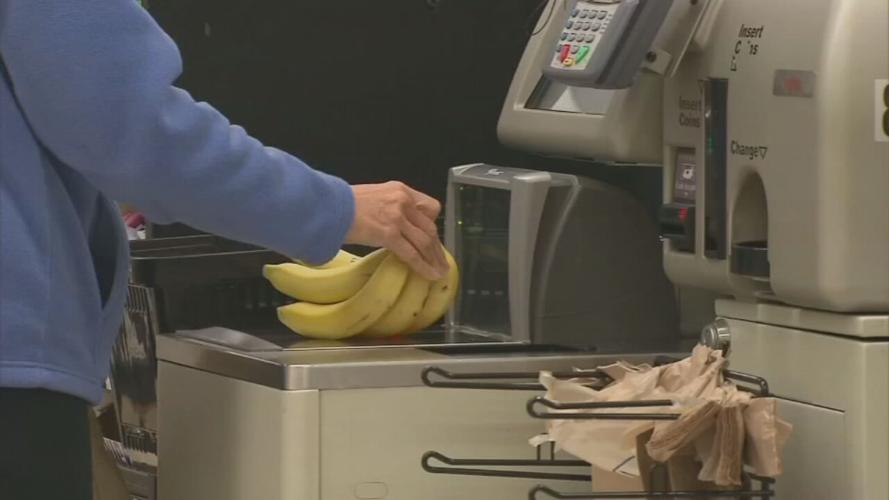LOUISVILLE, Ky. (WDRB) -- Some Kentucky lawmakers want to tighten the eligibility rules for food assistance, also known as SNAP benefits. But opponents are calling it a recipe for hunger.
For tens of thousands of Kentuckians who need help paying for groceries, like Lexington resident Tania Whitfield, the Supplemental Nutrition Assistance Program is life-changing.
"If I (were) to lose SNAP, it would take just about all of my benefits, it would take just about everything that I have," said Whitfield, who also works with Kentucky Food Action Network. "And then if I had to use the cash that I have to feed my children, we would be struggling every day."
Wednesday, Whitfield was one of about half a dozen people who gathered on a Zoom meeting to protest House Bill 367.
"SNAP benefits is vitally important for the survival of my family," she said.
HB 367 would create two changes. First, it would scrap Broad Based Categorial Eligibility, the most commonly used application for SNAP benefits, and instead implement a federal asset test to get a better scope of someone's income.
"There's no real reason to continue with these loopholes," the bill's sponsor, Rep. Wade Williams, R-Earlington, said during a discussion about the bill on Feb. 15. "Now that the pandemic is behind us, it's time for us to think about solutions to get more workers off the sidelines and back into the workforce."
But opponents disagree, and feel they're doing everything they can.
"People feel that we're not working enough," said Whitfield. "I'm working. I'm going to school, I'm helping with different organizations to better my life. I don't know what they feel like we're not doing enough of."
There's also concern about what taking away the current SNAP benefit application means for kids and schools. The application is linked to the reimbursement rates for free lunch at school.
"We're going to have to make hard decisions on looking at our babies and deciding, do we want to take a loss on a meal," asked Dalla Emerson, director of Food Services Operations.
Secondly, the proposal also allows the general assembly the option to bring back a work requirement for able-bodied people, which can currently be waived.
"People will not lose their benefits for SNAP in Kentucky. You're trying to get able-body Kentuckians back to work, Rep. Williams, that is correct," Rep. Samara Heavrin, R-Leitchfield, said during a Feb. 15 discussion about the bill.
According to an analysis of the bill by the Kentucky Center for Economic Policy, the bill would cut benefits to 65,000 Kentuckians and take $110 million "in federally-funded assistance with groceries out of our state and local economies each year."
AARP Kentucky has also expressed concerns about the bill and its impact on older Kentuckians. In a statement, the nonprofit said, in part, it "strongly believes no one in this country should have to go hungry. Access to an adequate, nutritious diet is foundational to maintaining health, dignity, quality of life, and independence as people age."
AARP Kentucky is asking the Senate to oppose a provision in the bill that would end broad-based categorial eligibility, which "can help individuals, families, and older adults on fixed incomes access vital food assistance while allowing them to build or preserve modest savings for emergencies, like unexpected medical bills."
"AARP opposes policies making it harder for food insecure seniors to access the benefits for which they are eligible. It is important to recognize the employment challenges and barriers older Kentuckians face, even in good economic times," the statement continued. "While most individuals receiving SNAP benefits are already working, older Kentuckians who fall out of the labor force face significant barriers to gaining employment and take longer to find employment compared to younger age groups. Older workers continue to remain long-term unemployed at a much higher rate than younger workers."
Additionally, the Community Farm Alliance is against the bill and its potential impact on Kentucky farmers. The group said less SNAP benefits means less money into the pockets of small farmers because food stamps are accepted at farmers markets.
CFA said because the average beginner Kentucky makes between $26,000 to $38,000 a year, many of them work multiple jobs and many of them use safety net programs like SNAP and would "punish recipients for saving for the future, exacerbating the benefits cliff."
"By eliminating BBCE, HB 367 would bring SNAP asset tests back to Kentucky," CFA said, in part. "This change would require farmers to either become completely destitute before getting assistance with food, or else disincentivize saving while participating in SNAP."
The bill has passed the House, but still needs a vote in the Senate. If passed, the bill is estimated to cost the state $2.3 million, which would cover administrative costs.
To read more about HB 367, click here.
Related Stories:
- 'Stay alert' | Louisville woman warning others after her EBT card was hacked
- Kentucky warns SNAP recipients about scammers targeting their benefits, information
Copyright 2024 WDRB Media. All Rights Reserved.














